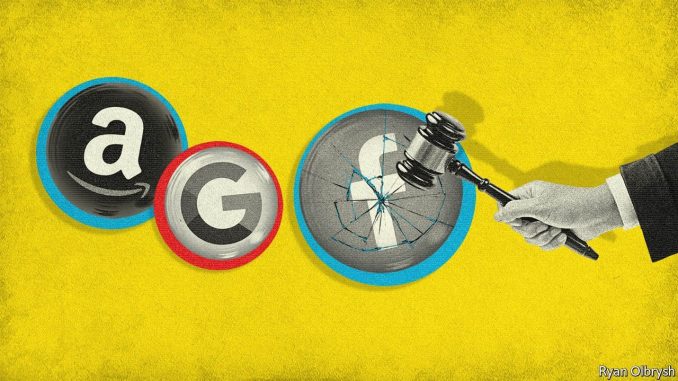
INTRODUCTION
-
What is “Techlash”?
With the progress of the times and the development of science and technology, people have become more dependent on and believe in the convenience of network technology. But in recent years, people’s trust in these “large technology companies” has been declining. Examples of “large technology companies” include Facebook, Google, Amazon, and Apple. A new poll in 2021—Edelman Trust Barometer, this survey shows “Globally, tech sector trust has dropped from 77% to 68% during that time.”, this shows how wide the scope of techlash is.(West,2021) Techlash is a new vocabulary that has only appeared in recent years. It was created by The Economist in early 2018 to describe people’s dissatisfaction with these large technology companies. Now government politicians and citizens have this growing hostility towards these technology giants, and there are also many doubts about these companies. Through some things that have happened in technology companies in recent years, these doubts have been gradually confirmed.
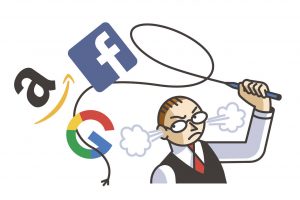 ‘Techlash’: Whipping Up Criticism of the Top Tech Companies by GREG CLARKE is licensed under a Creative Commons Attribution 4.0 International License.
‘Techlash’: Whipping Up Criticism of the Top Tech Companies by GREG CLARKE is licensed under a Creative Commons Attribution 4.0 International License.
-
The impact of Techlash
1.Monopoly market and daily life
First, these large technology companies have monopolized market. Large technology companies use their insights to acquire some early competitors through data analysis. For example: Facebook uses its little-known application—Onavo, to track users’ smartphones to help Facebook find potential “threats”, and then Facebook acquires Instagram, WhatsApp and tbh respectively. (Smith,2018) This is further confirmed “Facebook plans for everyone to be totally immersed in the Facebook ecosystem at all times.” (Weinstein,2021).
Now every large technology company has opened more areas, reflecting the fact that they are monopolizing market while also monopolizing our daily lives. As Smith mentioned “They cannot imagine life without you.” (Smith,2018) But such excessive dependence will cause our own lives to be affected when we do not have these platforms in our lives. For example, the systems of these large technology companies are malfunctioning. This incident happened a few days ago. On the afternoon of October 5th, Facebook, Messenger, WhatsApp and Instagram were all offline due to technical problems within Facebook, and they all returned to normal after six hours. Anna Masing, a writer in London, said that she uses WhatsApp to communicate with her family members overseas every day. The time when WhatsApp was unavailable made her feel “a lot of pressure”. (BBC,2021) BBC also mentioned: “Outage tracking service Down detector said on its website that “billions of users” had been impacted by “services being entirely offline”. (BBC,2021) This all proves that we rely on social media in our daily lives, and Facebook is in a dominant position.
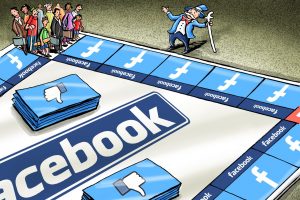
2.Influencing the democratic development process
With the development of the Internet and the advent of the democratic era that we call for, the Internet has given everyone the most opportunity to speak, and it has also made our communication on social platforms more convenient. In contrast, the Internet seems to have become a tool for spreading hatred and prejudice.(Berners-Lee,2020) Because of this, techlash has brought many obstacles to the development of democracy. These obstacles have also deepened the polarization on the Internet.
When it comes to polarization on the Internet, one must mention the concept of “filter bubble”, which was created by activist Eli Pariser in 2011. (Atkinson et al., 2019) Internet companies use personalized algorithms to focus users on things and information they like and are interested in, and gradually separate users from people and information with different opinions. From a deeper perspective, because the algorithm only pushes to the user’s interested parts, it is difficult for users to have a complete understanding of a matter, making it difficult for users to make meaningful judgments and discussions. Over time, leading users “ to a lack of understanding and an unwillingness to consider opposing viewpoints and unfavorite information.”(GCF Global,2018) But until now, large technology companies have not given a clear solution.
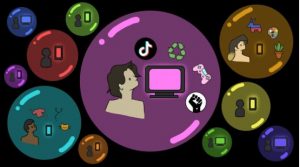
Another major influence is fake news. “A side effect of the freedom that the internet provides is the rapid spread of “fake news”.”(King,2019) Most social media still do not censor the content posted by users. The freedom of speech advocated by democracy makes some users mislead the public with false information and distorted reports because of their hatred or prejudice. With more and more channels for obtaining news now, it is difficult for users to distinguish between the true and false of a piece of news. In addition, the convenience of the Internet makes it spread quickly, which also undermines the legitimate reports of those media and replaces the real news. For example, in the 2016 U.S. election, after the U.S. election, Facebook found that Russia secretly put about 3000 advertisements on Facebook and Instagram, which were watched by 10 million people in the United States. The contents of the advertisements roughly attacked Hillary Clinton, praised Donald Trump, and made the American society disagree on the topics hotly discussed at that time, such as race, gun rights, immigration and LGBT. In addition, under the envelope of the filter bubble, what users receive is the same as their own opinions, which also makes users firmer in their opinions and further promotes polarization.
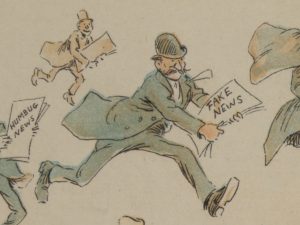
Regulatory methods
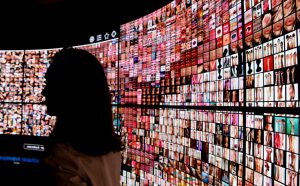
On the 30th birthday of the world wide web, founder and network inventor Sir Tim Berners Lee mentioned “ The web is for everyone and collectively we hold the power to change it.”(Berners-Lee,2018) at the end, I will analyze their regulatory methods from three aspects: technology companies themselves, the government and civil society organizations.
-
Self-regulation
First, we should consider self-regulation by technology companies. The advantage of self-regulation is faster efficiency. The fast execution speed of technology companies also means that users can be protected faster, and technology companies can take privacy, diversity and security into account in the design of platforms and products.(Berners-Lee,2018) But this also shows the need for technology companies to have a sense of self-regulation and action. Self regulation is also a “category of corporate social responsibility”.(Hemphill,2019) However, it is also possible that the company only publicizes and claims that the company has realized corporate social responsibility, but it has not been implemented in fact. At the same time, it also shows the passive nature of technology companies. If there is no incentive mechanism, it is difficult to promote the self-regulation of technology companies. In addition, technology companies are mainly for profit, without more consideration of public value. When there is a conflict of interest, technology companies cannot guarantee fair and just self-regulation.
-
Government
Government is the most traditional regulatory method. In recent years, Australia has also promulgated rules and laws through ACCC and ACMA to protect the interests of Australian citizens and companies. The advantage of government supervision of technology companies is strong execution ability, because the government has a good external supervision system, which can implement the rules of the industry through law, but the speed is very slow. The government cannot keep up with the pace of technological innovation, which is prone to regulatory gaps, and policymakers often lack technical understanding or effective procedures for timely implementation of regulatory systems. (Hemphill, 2019) however, it is difficult for the government to conduct cross-border supervision because each government has different supervision methods. For example, the regulatory laws promulgated on the ACCC and ACMA in Australia cannot implement incidents of Facebook infringing user data in other countries.
-
Civil society organizations
Civil society organizations should also participate in the ranks of regulating technology companies, which can not only improve citizens’ awareness of protecting their rights and interests, but also make the public aware of the necessity of supervision. Civil society organizations can promote public opinion’s support for the supervision of technology companies. At the same time, they can also attract people from all walks of life to participate in it and make it diversified. However, civil society organizations only advocate and propose, and the real implementation still needs to cooperate with the government and technology companies. Finally, we must resort to law or industry rules to implement regulation.
Conclusion
With the continuous progress of science and technology, techlash has always had an impact on us. This concerns the public, not just industry monopoly and filter bubble. In this case, the government implements the law, technology companies conduct self-regulation, and civil society organizations participate in it to work together, “we can get the web we want.”(Berners-Lee,2018).
Reference
- Berners-Lee, T. (2019). 30 years on, what’s next #ForTheWeb? World Wide Web Foundation. https://webfoundation.org/2019/03/web-birthday-30/
- West, D. M. (2021, April 2). Techlash continues to batter technology sector. Brookings. https://www.brookings.edu/blog/techtank/2021/04/02/techlash-continues-to-batter-technology-sector/
- Smith, E. (2018, January 20). The techlash against Amazon, Facebook and Google—and what they can do. The Economist. https://www.economist.com/briefing/2018/01/20/the-techlash-against-amazon-facebook-and-google-and-what-they-can-do
- Weinstein, M. (2021, October 1). I changed my mind—facebook is a monopoly. The Wall Street Journal. https://www.wsj.com/articles/facebook-is-monopoly-metaverse-users-advertising-platforms-competition-mewe-big-tech-11633104247
- BBC(2021, October 5). Facebook down: Six hours without WhatsApp. BBC News. https://www.bbc.com/news/technology-58801814
- Atkinson, D. B. R. D. (2019, October 28). A policymaker’s guide to the “techlash”—what it is and why it’s a threat to growth and progress. ITIF. https://itif.org/publications/2019/10/28/policymakers-guide-techlash
- GCF Global. (2018). Digital media literacy: How filter bubbles isolate you. GCFGlobal.Org. https://edu.gcfglobal.org/en/digital-media-literacy/how-filter-bubbles-isolate-you/1/
- King, F. (2019, July 11). What is Techlash and what does it mean for the digital industry? Baltic Apprenticeships. https://www.balticapprenticeships.com/blog/what-is-techlash-and-what-does-it-mean-for-the-digital-industry
- Hemphill, T. A. (2019). “Techlash”, responsible innovation, and the self-regulatory organization. Journal of Responsible Innovation, 6(2), 240–247. https://doi.org/10.1080/23299460.2019.1602817